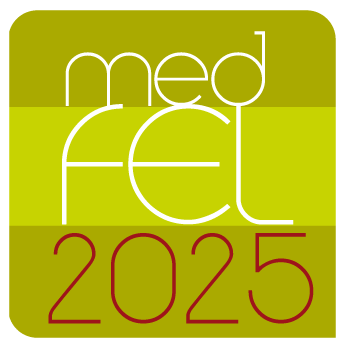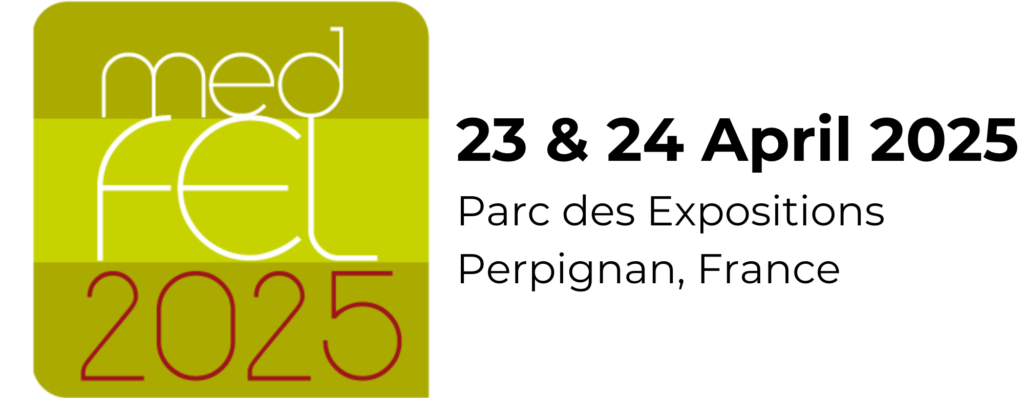On 25 September 2015, the 193 Member States of the United Nations together pledged to jointly implement 17 Sustainable Development Goals (SDG). These make up what is known as Agenda 2030. Farming sectors, including fruit and vegetables, are already involved in these sustainability approaches. medFEL 2022 will highlight the projects already launched, consider the new avenues to take, offer solutions and help overcome obstacles.
Wednesday 27th April 2022
10:00AM: Organic fruits, vegetables and potatoes: developing supply, boosting demand
With Florence Rossillion, CNIPT, Cécilia Céleyrette, Interfel and Dorian Flechet, Agence Bio
Presented by Olivier Masbou, Journalist and Dany La Noé, Interbio Occitanie
Fresh fruits and vegetables are in second place among organic products consumed in France, behind grocery products and ahead of dairy products. They represent 17% of organic products sales, and generate just over 2 billion euros in turnover. For some time now, like other organic sectors, we have observed a slowdown in market growth. And this in a context where production is developing. Is there a risk of stalling? How can the organic sector organize itself to continue to develop the offer while boosting consumption?
11:30AM: Inauguration of medFEL 2022
2:00PM: Forecast for melon plantations
With Myriam Martineau, Jérôme Jausseran and Marion Mispouillé, Association Interprofessionnelle Melon (AIM)
Presented by Olivier Masbou, Journalist
3:30PM: « French agriculture, at a time of the competitive transition »
With David Djaïz, Philosopher, Essayist and Senior Official
David Djaïz is the author of various books. The latest “Le nouveau modèle français” (Allary Editions) questions the speech on French decline. Contrary to this “decline”, he proposes to draw on our republican resources, in order to draw “the model which will project us into the 21st century”. This model is “already there, but low noise” he says. And to explain: “confidence regained in the nation as a sluice of globalization, return of the long term to the heart of our institutions, green reindustrialisation, development of a well-being economy creating value and social links: a new project of society is emerging, capable of bringing together a majority of us ”. French agriculture has its place in this “new social project”.
5:00PM: The “Low Carbon” label, an opportunity or a new value creating label?
With Xavier Le Clanche, ANPP and Bertrand Swiderski, Carrefour, Etienne Variot, Rize and François Moulias, Compagnie des Amandes
Presented by Florence Rabut, Journalist at Végétable
The “low carbon” label has been operational for three years. It offers certification to projects that sequester or avoid carbon emissions. The prerequisite for the certification of a project is to use a calculation method approved by the Ministry.
What are the methods that already exist or are under development for the fruit and vegetable sector? Who can finance these projects and what are the available types of finance? How many projects have already been labelled in the farming sector, and for what result(s)? Is this a simple opportunity or a genuine development lever to profoundly transform farming practices, increase value along all the links in the chain, and more widely reach other territorial players?
Thursday 28th April 2022
10:00AM: Chemical inputs: heading to « all zero »?
With Gisèle Broquier, Koppert, Muriel Millan, AOP Pêches et Abricots, Cécilia Céleyrette, Interfel, Ange Rama, Saveurs des Clos and Marianne Naudin, Lidl France
Presented by Florence Rabut, Journalist at Végétable
What is the common denominator between sustainable farming approaches or labels such as HVE (high environmental value), zero-trace or trace-free, Demain la terre or Bee Friendly®? They all offer the guarantee of using less chemical inputs or none at all, and thus reduce environmental impact, while the AB label (organic agriculture) guarantees an absence of synthetic chemical treatments.
Behind the reality of these positive approaches, an entire ecosystem is at work to identify, design, test and continually improve production systems towards new agricultural practices. What is the state of play in this area? Is reducing chemical inputs necessary and sufficient to pass as agro-ecology? What are the alternative solutions available, on stream or ahead, to cater to the substantial needs?
11:00AM: Soil, this other living being
With Xavier Dubreucq, Advisor in vegetable production and Sébastien Serot and Yohann Lethoueil, Pom’Evasion, Anne Trombini, Pour Une agriculture du Vivant and Jérôme Fanet, Pomona
Presented by Florence Rabut, Journalist at Végétable
After bees, “when soil dies, mankind’s days are numbered,” the saying could go! Soil has recovered a status following decades of neglect or, rather, indifference. Up until the fateful day when nothing grows properly anymore. Following in the footsteps of pioneering researchers, an entire movement is building in farming to re-incorporate a soil approach within production ecosystems. In practical terms, how can a positive agronomic approach be developed based on living soils? How far should we go in a soil approach, what and where are the approved models?
2:00PM: Retail chain vertical strategies
With Olivier Dauvers, Journalist and founder of Editions Dauvers
Societal demand always wants more. More local, more short distribution networks, more proximity, more quality indicators, including organic or even more performance indicators (such as the “pesticide-free” guarantee, “zero residue”, etc.). Brands sectors strategies provide an answer to these expectations.
How are they built? How do they work? Can they still grow?
3:30PM: European harvest forecast for apricots
With:
- For Spain: Santiago Vazquez, Federation of Spanish Cooperatives and Manel SIMON, Afrucat
- For Italy: Laura Stocchi and Tomas Bosi, CSO
- For Greece: Georges Kantzios, ASEPOP Cooperative
- For France: Bruno Darnaud, AOP Pêches et Abricots de France and Jean Pratx, Le Verger Bio de Véronique
Presented by Eric Hostalnou, Chambre d’agriculture des Pyrénées Orientales





